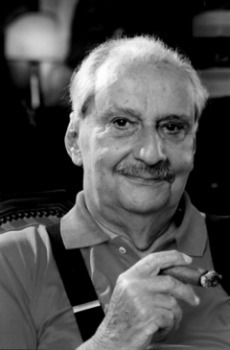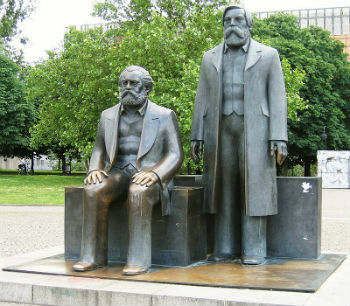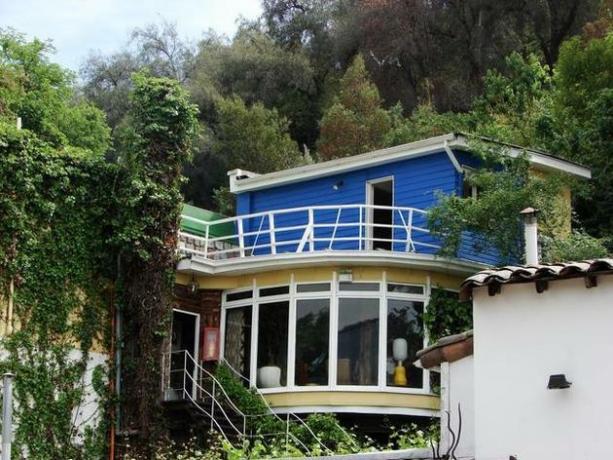Carlos Heitor Cony (1926-2018) was an outstanding Brazilian journalist and writer. About his work, he left seventeen novels, short stories, chronicles, biographical essays, children and youth and much more. Winner of several members, he was a member of the Brazilian Academy of Letters.
Biography

He was born in Rio de Janeiro on March 14, 1926. The fact that he had speech problems prevented him from entering school, which is why he learned to read and write with his father.
On the eve of his 12th birthday, he enters the Archdiocesan Seminary of São José, where he is awarded among the best students at the end of the school year.
Years later, he enrolled in the Literature course at the Faculdade Nacional de Filosofia, but did not finish the course. Helping his father at Jornal do Brasil in 1946, he became editor of Gazeta de Notícias the following year.
In 1952 he was the editor of the Jornal do Brasil radio station and in 1955 he began to write the novel Notebooks of the Bottom of the Abyss, but without ever ending it, begins the novel
the womb, which he enters into a literature contest under a pseudonym.The novel is considered the best, but does not receive the award. It is alleged, for that, the fact that the novel presents rude language and carries negativity.
Longing for the Manuel Antônio de Almeida prize, he enters the competition again after writing a new novel in just nine days. The Truth of Every Day, under the pseudonym Isaías Caminha, is the winner. The same happens with the romance that follows it, security brick, winner too, now with the pseudonym José Bálsamo.
In 1963 he released, with other authors (Guimarães Rosa, Otto Lara Resende, Lygia Fagundes Telles, José Condé, Guilherme Figueiredo and Mário Donato), The seven capital sins. And, in the same year, he started writing on the Folha de S's daily Opinion page. Paulo, taking turns with Cecília Meireles.
In 1965 he wrote a soap opera, which began to be broadcast on TV-Rio until it was censored. In the same year he was arrested, spending twenty days at the Federal Police. In 1968 he was imprisoned again for a few days.
In the 80's, he starts directing the magazine Facts and Photos, accompanies Pope John Paul II on his visit to Brazil and becomes the superintendent of television drama at Rede Manchete.
It was in the 90's that he returned to collaborate with Folha de S. Paul and who again follows the visit of Pope John Paul II.
In 1996, he won the Machado de Assis prize from the Brazilian Academy of Letters, for his body of work, and the Jabuti Prize, from the Brazilian Chamber of Books, for Almost Memory.
The following year, it's time to win the Nestlé National Literature Prize. The same is achieved with romance The Piano and the Orchestra, in the "acclaimed author" category. Still in 1997 launches The House of the Tragic Poet, which is voted book of the year, winning the Jabuti prize.
In 1998, he receives the degree of gentleman from the Ordre des Arts and des Lettres, in Paris.
In 2000, he joined the Brazilian Academy of Letters, where he occupies chair No. 3. In the same year he again wins the Jabuti award with Novel Without Words.
He dies on January 5, 2018, aged 91, a victim of multiple organ failure.
Construction
Affairs
- The Belly (1958)
- The Everyday Truth (1959)
- Security Brick (1960)
- Information to the Crucified (1961)
- Memory Matter (1962)
- Before, the summer (1964)
- White Ballet (1965)
- Passover: the Crossing (1967)
- Pilate (1973)
- Almost Memory (1995)
- The Piano and the Orchestra (1996)
- The House of the Tragic Poet (1997)
- Novel Without Words (1999)
- The Nominee (2001)
- The Afternoon of Your Absence (2003)
- The Advance of the Hour (2006)
- Death and Life (2007)
Tales
- Fifteen Years (1965)
- About All Things (1968)
- Babylon! Babylon! (1978)
- Bourgeois and Crime (1997)
Chronicles
- On the Art of Speak Out (1963)
- The Act and the Fact (1964)
- Post Six (1965)
- The Oldest Years of the Past (1998)
- The Harem of Banana Trees (1999)
- Everything and Nothing (2004)
- Me, to the Pieces (2010)
biographical essays
- Charles Chaplin (1965)
- Who Killed Vargas (1972)
- JK - Memorial do Exile (1982)
- Teruz (1985)
- Chaplin and Other Essays (2012)
- JK and the Dictatorship (2012)
Children and Youth
- Fifteen Years (1965)
- A Love Story (1977)
- The Brother You Gave Me (1979)
- Rose, Blood Vegetable (1979)
- A Gorda ea Volta por Cima (1986)
- Luciana Saudade (1989)
- The Pink Lace (2002)
- Vera Summer (2014)
Sentences
- "Nostalgia is longing for what I lived, melancholy is longing for what I didn't experience."
- "Man cannot betray the writer, but the writer must always betray the man. When he takes on the role of writer, he must stand above man."
- "Did the monkey get better or did the man get worse?"
- "The young heads were made to hit walls. Almost all manage to survive."
- "Bikinis and posts should be short to pique interest and long enough to cover the object."
Read too Characteristics of Contemporary Brazilian Literature.



